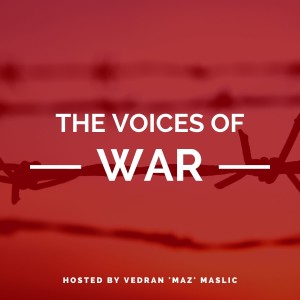
My guest today is Hasan Aygun. He is a Turkish national, who has had an extensive career in international relations, global security and conflict management both as a diplomat and later as a political adviser. Hasan joined the Turkish Ministry of Foreign Affairs in 1983, and since then, he has served abroad in various functions, including Vice-Consul, First Secretary, Head of Mission and Counsel General in several different countries including Iraq, Italy, Serbia (at that time still Yugoslavia), Austria, Azerbaijan and Saudi Arabia.
He later became a senior political adviser for NATO where over the years he provided advice to six different four-star generals. During this time, he supported NATO humanitarian operations in places like Pakistan during the Kashmir earthquake and in the US during Hurricane Katrina. He also actively participated in Operations in the Sudan and Somalia as well as in counter-piracy operations and support to the African Union.
Hasan is currently an Associate Director at Strategia Worldwide, where he advises multinational businesses, governments and NGO's on complex risk management in conflict affected regions with a geographical focus on the former Soviet states, the Middle East, Africa, the broader Islamic World as well as maritime and energy transportation.
We covered many different points, some of which are:
- The life of a diplomat
- The nuance of balancing national vs. local priorities in a war zone
- Reflections on Hasan’s lunches and tea ceremonies with Saddam Hussein and Muammar Gaddafi
- The importance of ‘interests’ in determining whether a conflict becomes local or international
- Secondary interests as reasons why the West invaded Iraq
- Helping Bosnian refugees as a Turkish diplomat in Serbia during the war in Bosnia and Herzegovina
- The importance of narratives propagated by ‘people you want to believe’ and ‘pack identity’ in starting and sustaining war
- Why otherwise good people do horrible things
- Post-conflict recovery as an industry
- Difficulty and lack of incentives in finding a win-win solution in war zones
- How national interests shape NATO interventions or lack thereof
- 50% of success in an intervention rests on understanding the culture of stakeholders in a conflict
- Are all societies ready for democracy?
- Why a war between the US and China is not likely
Finally, as you’ll be reminded in the introduction to the episode, here is the link for a short survey on the podcast. Thank you for taking two minutes to complete it.
https://forms.gle/HzBzMeDnGuSGUJi89
I hope you enjoy the episode.
No comments yet. Be the first to say something!